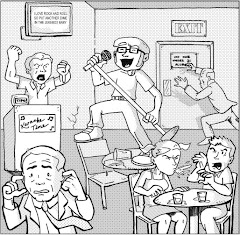World's Finest vol. 40 #263, June/July 1980, DC Comics
various creative teams
As a superhero fan with an inclination toward DC's roster of icons, I've been looking forward to reviewing this issue. Packed with five full-length features, I've been saving this dose for a day with little else on the agenda; obviously, today's the day. I read the headlining story this morning (like 3 a.m. this morning), and the rest of the issue piece by piece throughout the day, to fully digest all of its campy '80s goodness. I've concluded that the more I devour books like this, which multiple stories starring multiple characters, the more I miss the format in contemporary comics. Characters are much more accessible in episodic installments, and B-listers like Adam Strange and Captain Marvel, Jr. share the spotlight with Superman and Batman. Without books like this laying the foundation of the DCU's versatility, epics like Identity Crisis and Infinite Crisis may not have been possible. Well, maybe I can live without these titles, then . . . but that's another topic entirely.
In the first story, written by Denny O'Neil, the "Final Secret of the Super-Sons" is revealed, with enough shoddy science and contrived emotion to fuel an entire season of Deep Space Nine. Not to mix mediums. The tale begins with a computer simulation of Superman's and Batman's sons in combat, which is apparently an exercise in paternal fulfillment on the heroes' part. Nevermind that Batman raised Dick Grayson as a surrogate father, and that Superman has a young Kryptonian cousin in need of guidance in the real world. Anyway, when Batman forgets to end the simulation, the computer overloads, and thanks to Superman's deposit of a radioactive ore in the Fortress of Solitude's disintegration pit, the boys come to life. Their existence is brief, as their radioactive forms create an instability that threatens the very Earth itself. With as much grief as one silent closing panel can offer, the World's Finest tell their faux spawn to hop in the pit from whence they came. Even Superman's fake son is selfless 'til the end: "Aw, I didn't really want to exist anyway!" Nice. The best parts of the story revealed Denny O'Neil's unwavering faithfulness to Batman's investigative intelligence: when the boys were still in the simulation, Batman, Jr. deduced that they were "only two dimensional creatures living in a three dimensional universe!" Close enough. Later, in the real world, when they first confront the Caped Crusader, a speechless Batman excuses himself to sit and analyze the possibilities of the kids' existence. As much as these characters are driven by action, quiet moments of thought and introspection like this are just as compelling. Compelling, yes, but not enough to garner any real sympathy with the Super-Sons. O'Neil took a fifteen-page story concept and wrote an appropriate story without overdoing it. That's a legacy we all can live with.
The other stories varied slightly in plot and artistic quality, but were all essentially fodder for their respective hero's canon and character. In "Hell's Acre Savior," Green Arrow uses his dual positions as a vigilante and an editorial columnist (?) to expose a business man's plans to build a reclamation center as a plot to cover up a decades old mob burial ground. The activism that O-Neil -- there's that name again -- established with Arrow back in his Green Lantern team-up dates was still ripe for the plucking, apparently. In "Zeta-Death," Adam Strange infiltrates an enemy compound to secure technology necessary to win their ironic Peace War. Those Zeta beams are as fickle as an alternator in an old '67 Chevelle; you never know if you're really going to get where you're going, you know? "Return to New Venice" is essentially an Aquaman origin piece, with a prelude or two of adventures to come, apparently including an inter-dimensional quest to save the mayor's brother. Finally, in "The Graybeard Gang," Captain Marvel, Jr. battles a threesome of extremely elderly gunslingers, seemingly still alive by their sheer desire to do evil. They may be performing in next year's Superbowl half-time show.
Oh, and I should note that the Flash makes an appearance in this issue, foiling the Destroyer's attempt to topple a dam with those tasty Hostess Twinkies, the world's finest sweet treat!
Although some of these stories have some tragic undertones, including a touching (and potentially fatal?) shedding of tears from Aquaman, all of these yarns were light, fun, and easy to read by today's standards. Those were the days when a hero could face a crisis and stand tall, maintaining their integrity as an icon and incorporating the moment as an inspiration to continue their mission. Further, as dire as some of these circumstances were, none of these stories dramatically altered the character beyond their recognizable core. Adam Strange faces the possibility of never seeing his family again, of certain death, and emerges with a quip on his lips. Remember those days, when heroes smiled? As I said in the beginning, epics like Whatever Crisis might not have had the desired impact without series like World's Finest establishing the totality of DC's heroic role call. Still, these epics should remember what makes these heroes the finest in the first place.
Saturday, August 26, 2006
Subscribe to:
Post Comments (Atom)



No comments:
Post a Comment